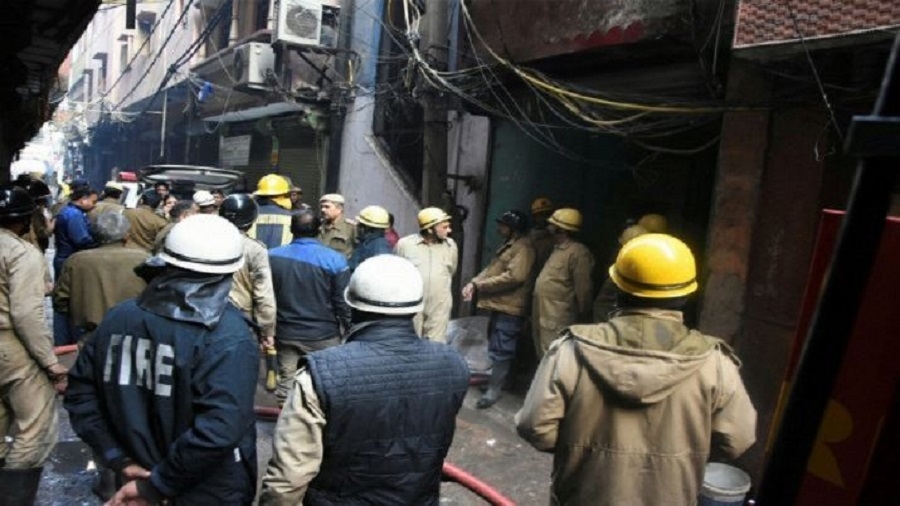wake-up call
| Date :10-Dec-2019 |

THE tragedy that unfolded at Delhi’s congested Anaj Mandi on Sunday and claimed 43 poor and migrant labourers is yet another dark reminder of what a nexus of a failed system, corrupt administration, and total disregard for rules can do to human lives. The victims were petty workers hailing from Bihar and Uttar Pradesh and were working in illegal manufacturing units housed in a building that did not have fire safety clearances and was packed with combustible material. It was a bomb waiting to explode. And when it did, to turn into the worst fire tragedy in last two decades, the incident has yet again raised questions on the criminal neglect that authorities indulge into for the sake of a quick buck.
There is no exaggeration in the expression here. It is a commonplace knowledge how rules are bent by greasing some palms without consideration of consequences. Most fire tragedies in India have brought to fore facts that were shocking but not surprising at all. Unfortunately, deaths in fire incidents has become a familiar story. And that leaves an untold pain in the heart. Like it is done in every tragedy, a perfunctory probe will be initiated and victims will be compensated. However, the root cause remains unattended. A congested building housing manufacturing units without necessary permissions, without fire safety norms installed for years is conveniently kept out of inspection by the authorities. It reflects the malaise of corruption entrenched firmly in the society. The migrant labourers included some children, which again points to the unabated practice of child labour that too in hazardous units.
All this is possible only under the umbrella of a dozing system and non-chalant babudom. If precious human lives are treated with such insouciance, then it is a pathetic commentary on a sick mentality. The national capital has seen it all. The scars of Uphaar Cinema tragedy in 1997 which claimed 59 lives are still fresh. The case took a long-winding time in the courts before justice was delivered by bringing the culprits to books. More recently, blaze left 17 people dead in a hotel fire at Karol Bagh in February. Yet, no lesson has been learnt. Fire safety remains the most-neglected factor in town planning. Illegal constructions and circumvention of rules have produced hazardous structures. The cycle goes on with worrying impunity. Nothing much differs in other parts of the country.
The coaching classes fire in Surat in May this year, where 22 young students lost their lives, also was an outcome of neglect of basic fire safety norms. Lack of emergency exits and absence of fire-fighting equipment were two major causes of deaths. This comes from the callous attitude in ensuring human safety during town planning. Building sanction norms require a fool-proof fire safety system after which fire compliance certificate is issued and permission for occupation is granted. These rules are mostly compromised or put on the backburner with a promise of correction in the near future. Factories without fire compliance are happy minting grounds for bribe-seekers.
The story is all the more frightening in old buildings, especially in thickly populated localities. Fire safety does not even figure in the living conditions. Generations inhabit the structures on hope and prayer. But destiny does not always work on these premises. If at all tragedies like Uphaar Cinema or Anaj Mandi are to be averted in the future then there is not other alternative than to enforce rules without compromise. The Delhi incident should serve as a final wake-up call for the authorities. Unless illegal constructions and mushrooming factories sans proper permissions are not nipped in the bud the vicious cycle will continue to haunt the society.